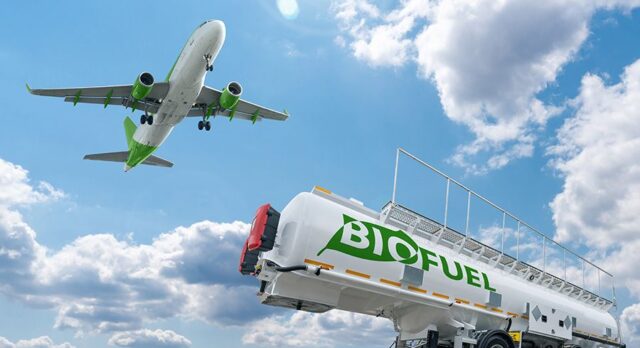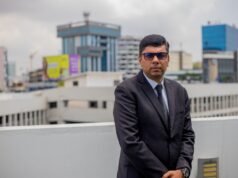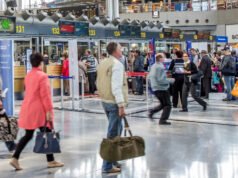
Ghana Plots Takeoff in Green Jet Fuel | By Dominick Andoh & Gifty Ruth Odamtten |
With global demand for eco-friendly jet fuel soaring, Ghana is positioning itself to become a regional hub for Sustainable Aviation Fuel (SAF) production, unlocking new investment, jobs, and a greener aviation future.
Accra, Ghana. Ghana is positioning itself to tap into the multi-million-dollar Sustainable Aviation Fuel (SAF) Market as part of a collective global effort for aviation to reach net-zero carbon emissions by 2050.
Stakeholders at the just-ended International Civil Aviation Organisation (ICAO) workshop on the Assistance, Capacity Building and Training Programme for Sustainable Aviation Fuels (ACT-SAF), held in Accra, Ghana and hosted by the Ghana Civil Aviation Authority (GCAA), committed to harnessing the potential in the development and deployment of Sustainable Aviation Fuels (SAF) in Ghana.
Ghana and other African countries are yet to tap into this multi-billion-dollar industry despite the availability of raw materials for SAF production, such as cooking oil, plant oils, wood chips, treated straw, algae, municipal waste, waste gases, and agricultural residue.
For nearly two decades, Ghana has experimented with the production of plant-based sustainable fuels mainly from the Jatropha plant. The technology developed so far, has been only able to produce biodiesel for use by small-scale agro-processing machines.
The setting up of waste treatment plants in Accra and Kumasi by the Jospong Group of Companies holds a lot of promise for Ghana to venture into the production of sustainable aviation fuel (SAF).
The raw materials—organic and inorganic waste—abound in a country struggling to contain and properly dispose or reuse the millions of tons of municipal waste across the country.
In Ghana, about 12,710 tons of solid waste is generated daily. The capital city, Accra, generates as much as 15,000 tons of solid waste per day. Research on the waste composition of Ghana’s solid waste in 2020 shows that it is predominantly organic (60%), plastic (14 %), paper (5%), metals (3%), and glass (3%).
Dignitaries in attendance underscored the national importance of the programme for the environment and the financial benefits of going into SAF production using locally available raw materials.
The dignitaries included: Hon. Joseph Nikpe Bukari, Minister for Transport; Hon. John Abdulai Jinapor, Minister for Energy; Hon. Dr. Ibrahim Murtala Muhammed, Minister for Environment, Science and Technology; Hon. Eric Opoku, Minister for Food and Agriculture; and Hon. Dr. Cassiel Ato Forson, Minister for Finance.
They noted that the workshop aligns seamlessly with Ghana’s roadmap to achieve net-zero emissions by 2070, demonstrating a strong link between national and global aviation sustainability goals.
A key focus of the discussions revolved around the ICAO’s extensive work on SAF, which began with the first international conference on aviation and alternative fuels in Rio de Janeiro in 2009. Initial efforts concentrated on demonstrating the safety of SAF as a viable alternative to conventional jet fuel. Subsequent conferences in 2017 and a pivotal ICAO Assembly resolution in 2020 further solidified the global commitment to long-term carbon emissions reduction in aviation.
The ACT-SAF program, a crucial facilitator of this roadmap, supports countries in adopting sustainable aviation practices. The workshop delved into ICAO’s four key “building blocks” for achieving this goal: policy and planning, regulatory framework, implementation support, and finance.
Ghana’s existing national decarbonization goals were cited as a fundamental element of the policy and planning block, with action plans already in place.
Ghana Plots Takeoff in Green Jet Fuel | AviationGhana























